More from the Review
Subscribe to our Newsletter
Best of The New York Review, plus books, events, and other items of interest
Advertisement
More from the Review
Subscribe to our Newsletter
Best of The New York Review, plus books, events, and other items of interest
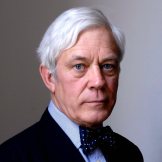
Geoffrey Wheatcroft’s books include The Controversy of Zion, Yo, Blair!, Churchill’s Shadow, and Bloody Panico! or, Whatever Happened to the Tory Party?, which was published in May. (August 2024)
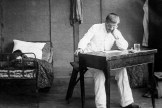
The Unwilling Celebrity
Maurice Samuels’s Alfred Dreyfus is a biography of the very private man at the center of one of the greatest public controversies of modern times.
Alfred Dreyfus: The Man at the Center of the Affair
by Maurice Samuels
April 18, 2024 issue
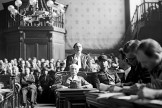
The Collaborator in Chief
The trial of Marshal Philippe Pétain was also implicitly a trial of the millions of French men and women who may have disliked the German occupation but who compromised with it and obeyed Vichy.
France on Trial: The Case of Marshal Pétain
by Julian Jackson
December 7, 2023 issue
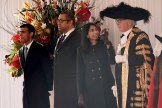
Bloody Panico
The British Conservative Party was once one of the great popular political movements of Europe. What happened?
Tory Nation: How One Party Took Over
by Samuel Earle
Boris Johnson: The Rise and Fall of a Troublemaker at Number 10
by Andrew Gimson
Pandemic Diaries: The Inside Story of Britain’s Battle Against Covid
by Matt Hancock with Isabel Oakeshott
The Fall of Boris Johnson: The Full Story
by Sebastian Payne
Out of the Blue: The Inside Story of the Unexpected Rise and Rapid Fall of Liz Truss
by Harry Cole and James Heale
The Reign: Life in Elizabeth’s Britain, Part 1: The Way It Was, 1952–79
by Matthew Engel
The Worm in the Apple: A History of the Conservative Party and Europe from Churchill to Cameron
by Christopher Tugendhat
March 23, 2023 issue
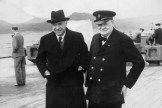
The Limits of Press Power
To what extent did newspapers influence public opinion in the US and Britain before and during World War II?
The Newspaper Axis: Six Press Barons Who Enabled Hitler
by Kathryn S. Olmsted
The Media Offensive: How the Press and Public Opinion Shaped Allied Strategy During World War II
by Alexander G. Lovelace
November 3, 2022 issue
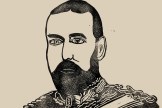
An Unexpectedly Modern Monarch
Despite his mundane outlook and stiff conventionality, George V may have ensured the survival of the British monarchy in a turbulent century.
George V: Never a Dull Moment
by Jane Ridley
April 7, 2022 issue

Mogul of Mystery
Robert Maxwell's improbable transformation from yeshiva boy to British media baron and outrageous swindler.
Fall: The Mysterious Life and Death of Robert Maxwell, Britain’s Most Notorious Media Baron
by John Preston
October 7, 2021 issue

Europe’s Most Terrible Years
For Germans, World War II began with deceit and cruelty and ended in physical and moral desolation.
Poland 1939: The Outbreak of World War II
by Roger Moorhouse
“Promise Me You’ll Shoot Yourself”: The Mass Suicide of Ordinary Germans in 1945
by Florian Huber, translated from the German by Imogen Taylor
December 17, 2020 issue
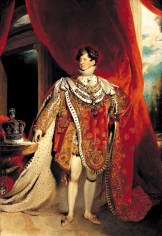
A Discriminating Dissolute
George IV: Art and Spectacle
an exhibition at the Queen’s Gallery, Buckingham Palace, London, November 15, 2019–May 3, 2020; and the Queen’s Gallery, Palace of Holyroodhouse, Edinburgh, October 16, 2020–April 5, 2021
George IV: King in Waiting
by Stella Tillyard
May 28, 2020 issue
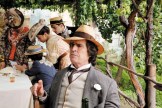
‘Feasting with Panthers’
The Happy Prince
a film written and directed by Rupert Everett
Oscar: A Life
by Matthew Sturgis
March 21, 2019 issue
One Hundred Years of Destruction
To have seen devastating bombing as the only way through was forgivable in the dire circumstances of 1940, but by the beginning of 1942 defeat was no longer feared.
RAF: The Birth of the World’s First Air Force
by Richard Overy
Aerial Warfare: The Battle for the Skies
by Frank Ledwidg
December 20, 2018 issue
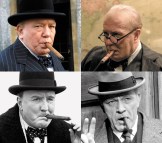
A Star Is Born
Churchill
a film directed by Jonathan Teplitzky
Darkest Hour
a film directed by Joe Wright
January 18, 2018 issue
Subscribe and save 50%!
Read the latest issue as soon as it’s available, and browse our rich archives. You'll have immediate subscriber-only access to over 1,200 issues and 25,000 articles published since 1963.
Subscribe now